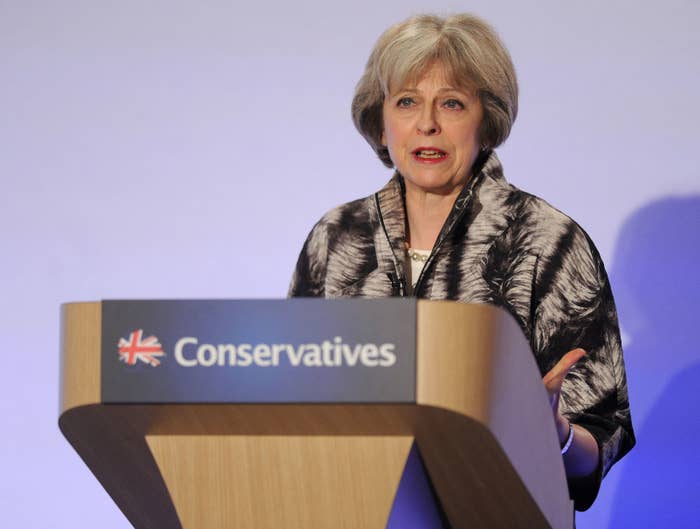
Over 100 organisations – including Amnesty International and Liberty – have warned the government not to repeal the Human Rights Act in the wake of today's Queen's Speech, which includes plans for a British Bill of Rights.
At present, the Human Rights Act allows UK nationals access to rights contained in the European Convention on Human Rights (ECHR), an international treaty drawn up in the wake of World War 2.
Some ECHR rulings made under the Human Rights Act – such as the blocked deportation of Abu Qatada and other foreign criminals from the UK – have angered the Tory right, who say Britain should leave. There has been criticism of the act's implementation for many years, going back to the days of Tony Blair.
Today's plans are aimed at allowing British judges to have the final say on human rights cases – but stop short of advising that Britain should leave the ECHR.
The decision on whether Britain should abandon it has divided the government, with Theresa May, the home secretary, keen to leave and David Cameron committed to remaining a member. May has said the convention "can bind the hands of Parliament, adds nothing to our prosperity, makes us less secure by preventing the deportation of dangerous foreign nationals".
However, 130 different organisations, including from religious and professional bodies, law firms, unions, environmental charities, and the families of terrorism victims – have told the government plans to repeal the Human Rights Act would "diminish rights protections" for everyone in the UK.
Amnesty International has also compiled a list of other reasons it says the Human Rights Act "makes the UK a better place". They include stopping elderly couples from being separated, protecting women from domestic violence, and making it safer to be gay. It also points out the families of those killed in the Hillsborough disaster were only able to obtain a new inquest into their deaths through Article 2 (the right to life) of the ECHR, as protected in the Human Rights Act.
Kate Allen, Amnesty UK Director, said: "Hillsborough shows how vital the Human Rights Act is to ordinary people when all other avenues of justice fail. We mustn't let politicians tear up those hard-won protections. … The government should leave the Human Rights Act alone – it's ours, it's working, it's needed."
Bella Sankey, director of policy for Liberty, said: "These diverse organisations speak as one in defending the Human Rights Act. They join all the devolved administrations, all major opposition parties, Conservative rebels, anti-apartheid activists, and thousands of ordinary people in opposing divisive and discriminatory plans to replace human rights with government-sanctioned privileges. There is a long struggle ahead, but as the chorus of condemnation grows, how much longer can the government refuse to listen?"
A Ministry of Justice spokesperson said: "This government has a mandate to reform and modernise the UK human rights framework. Our bill will protect fundamental human rights, but prevent their abuse and restore some common sense to the system. We will fully consult on our proposals."
